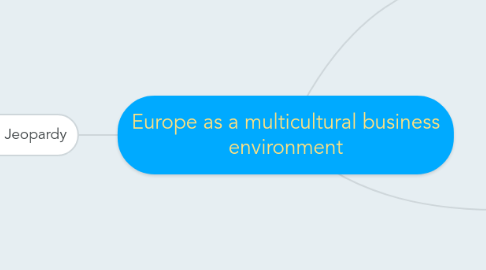
1. week 40: Jeopardy
1.1. http://en.wikipedia.org/wiki/Anti-competitive_practices: link to list of anti-competitive practices
1.2. protectionist measures
1.2.1. tax competition
1.2.1.1. ...a form of regulatory competition, exists when governments are encouraged to lower fiscal burdens to either encourage the inflow of productive resources or discourage the exodus of those resources. Often, this means a governmental strategy of attracting foreign direct investment, foreign indirect investment (financial investment), and high value human resources by minimizing the overall XX level and/or special XX preferences, creating a comparative advantage.
1.2.1.2. Her skriver jeg
1.2.2. state monopoly
1.2.2.1. a situation where an organisation owned and run by the state (e.g. the Post Office) is the only supplier of a product or service
1.2.3. state aid
1.2.3.1. A company which receives government support gains an advantage over its competitors. Therefore, the Treaty generally prohibits this [concept] unless it is justified by reasons of general economic development. To ensure that this prohibition is respected and exemptions are applied equally across the European Union, the European Commission is in charge of ensuring that the use of this [concept] complies with EU rules.
1.3. anti competitive measure
1.3.1. cartel
1.3.1.1. An organization created from a formal agreement between a group of producers of a good or service, to regulate supply in an effort to regulate or manipulate prices. It [concept] is a collection of businesses or countries that act together as a single producer and agree to influence prices for certain goods and services by controlling production and marketing.
1.3.2. monopoly
1.3.2.1. A situation in which a single company owns all or nearly all of the market for a given type of product or service.
1.3.2.1.1. predatory pricing
1.4. European Competition policies
1.4.1. merger control
1.4.1.1. Refers to the procedure of reviewing mergers and acquisitions under competition law
1.4.2. antitrust
1.4.2.1. opposing or intended to restrain monopolies, or other large combinations of business and capital, especially with a view to maintaining and promoting competition
2. Week 38
2.1. WTO (1994)(previously: GATT (1947)): world trade organisation
2.1.1. goals: reduction of customs, tariffs and trade barriers
2.1.1.1. underlying assumption: rise in living standards, provision of resources etc. dependent on unhindered competition.
2.1.2. membership
2.1.2.1. EU as an entity
2.1.2.1.1. represented by Europan commission (executive branch)
2.1.2.2. national states on individual basis
3. Week 39
3.1. Third country nationals:
3.1.1. Third Country National (TCN) is a term often used in the context of migration, referring to individuals who are in transit and/or applying for visas in countries that are not their country of origin (i.e. country of transit), in order to go to destination countries that is likewise not their country of origin. In the European Union, the term is often used, together with "foreign national" and "non-EU foreign national", to refer to individuals who are neither from the EU country in which they are currently living or staying, nor from other member states of the European Union.[1] http://en.wikipedia.org/wiki/Third_country_national
3.2. receiving member states?
3.3. p 542/secondary labour market jobs?
3.4. p.543/Ciupijus: privatized migration regime
3.4.1. What is meant? and why is it important?
